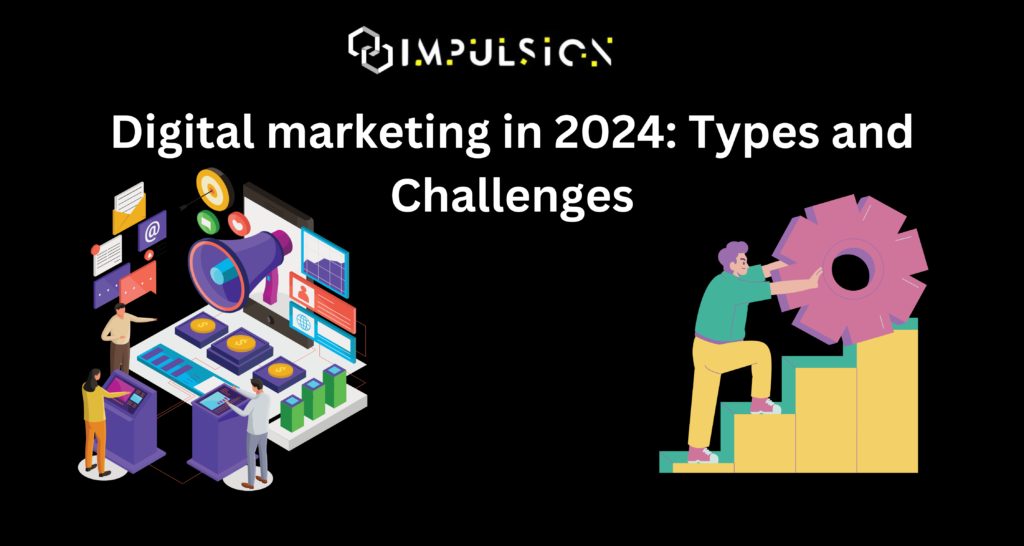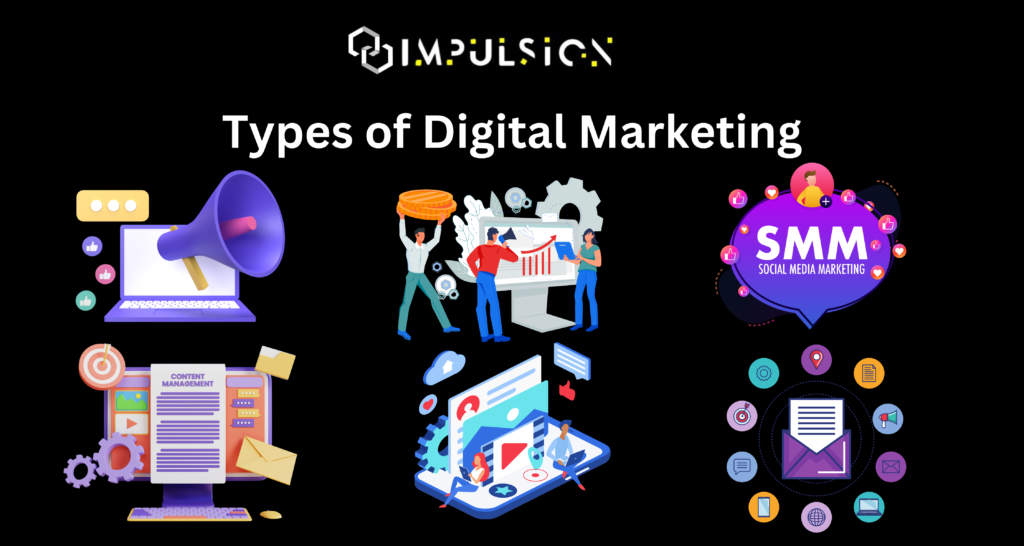
Digital marketing is one of the finest sorts of marketing for your products and services. It is like the king of all the marketing types because almost all forms of advertising are covered in it. Digital marketing can help you with anything right, from making your services visible to your audience to increasing the authenticity score. This marketing type is doing wonders for all those who own any online service. It can take your website or virtual products from roots to the shots of success and popularity. Digital marketing helps you garner organic traffic and also uplifts your SEO game. It also assists you in popularizing your products and services and helps you expand your product base.
What we have more for you in this blog:
- What is Digital Marketing?
- Importance of Digital Marketing
- Types of Digital Marketing
- Challenges of Digital Marketing
What is Digital Marketing?
Digital marketing uses the internet and digital tools to promote products or services. It includes things like websites, social media, and email. Businesses use it to reach a lot of people easily. It’s different from traditional marketing because it uses digital channels and is more interactive.
Importance of Digital Marketing
The importance of digital marketing lies in its ability to reach more people quickly and at a lower cost than traditional methods. It lets businesses target specific audiences, making their marketing efforts more effective. Digital marketing also offers real-time feedback so companies can quickly adjust their strategies. It’s essential today because many people use the internet and digital devices daily.
Types of digital marketing

- Search Engine Optimization (SEO): This is about improving a website’s visibility when people search for products or services related to your business in Google, Bing, and other search engines.
- Content Marketing: This strategy focuses on creating and distributing valuable, relevant, consistent content to attract and engage a clearly defined audience.
- Social Media Marketing: It involves using social media platforms like Facebook, Twitter, and Instagram to connect with your audience, build your brand, increase sales, and drive website traffic.
- Pay-Per-Click (PPC): PPC is a king of all the digital marketing types as it drives massive traffic to your website by paying a publisher every time your ad is clicked. You must have heard of Google Ads, well it is one of the most common types of PPC.
- Email Marketing: Businesses use email marketing to communicate with their audiences. Email is a leading way to promote content, discounts, and occasions and to bring people toward the business’s website.
- Affiliate Marketing: It is a type of performance-based advertising where you receive a commission for promoting someone else’s products or services on your website.
- Influencer Marketing: Brands collaborate with online influencers to market one or more of their products or services.
- Mobile Marketing: This terrific type of digital marketing includes advertisements that appear on mobile smartphones, tablets, or other mobile devices. Mobile marketing can include SMS text messages, mobile apps, and websites.
- Online PR: Basically, it is the practice of securing earned online coverage with digital publications, blogs, and other content-based websites. It’s much like conventional PR but in the online space.
- Marketing Automation: It refers to software that automates your basic marketing operations. Many marketing divisions automate repetitive tasks including email marketing, social media calendars, and even ad campaigns.
Challenges of Digital Marketing
Digital marketing, while offering numerous advantages, comes with its own set of challenges:
- Competition: The digital space is crowded. Many big and small companies are vying for attention, making it hard to stand out.
- Changing Trends: Digital trends evolve rapidly. What works today might not work tomorrow, so marketers must constantly adapt and learn.
- Budgeting: Allocating the right budget for digital marketing is tricky. Spend too little, and you risk invisibility; spend too much, and you might not get a good return on investment.
- Understanding Data: There’s a lot of data to track, be it clicks, views, or engagement rates. Interpreting this data correctly to make informed decisions is challenging.
- Maintaining Customer Trust: With privacy and data security concerns, earning and keeping customers’ trust is increasingly difficult. Marketers need to be transparent and ethical in their practices.
The Bottom Line
The future of digital marketing looks exciting and dynamic. It will focus more on personal experiences and understanding what each person likes. Social media will keep being important, letting companies talk directly to customers. Video content will become more popular as it’s easy to watch and share. Smartphones will play a big role in making marketing more mobile-friendly. We’ll also see more use of artificial intelligence, which can analyze data quickly to help businesses understand what customers want. Digital marketing will become more tailored and efficient, using technology to create better connections between companies and people. So, if you want to take your online services to the zenith of success, don’t forget to incorporate digital marketing.
 Exciting news! Get 15% off on digital marketing services
Exciting news! Get 15% off on digital marketing services